-
ABOUT US
-
ACADEMICS
Curriculum Program
Departments
- English
- High School Chinese
- Primary and Junior School Chinese.
- High School Mathematics
- Middle School Mathematics
- Primary School Mathematics
- Music and Fine Arts
- Physical Education
- Physics
- Chemistry
- History and Geography
- Physical Science and Optional courses Department
- Middle School Biology
- High School Biology
- Social Sciences
- Computer Science
- Courses in Primary School
Achievements and Matriculations
College Counseling
Science & Technology Innovation Contest
Subject Competition
-
ARTS
-
ATHLETICS
-
AT SHSID
SHSID ∣ TIMES
PTSA
Club Exhibition
- 龙吟社
- Live 2 Drama
- Choir
- Hip-pop Dance Club
- The Primary School Dance Troupe
- Symposiums Club
- Biology Workshop
- You Shan
- VEX Robotic
- Peking Opera Club
- Baseball Club
- Model United Nations
- The World Scholar’s Cup
- Future Problem Solving Club
- United States Academic Pentathlon
- OM Club
- AMC Club
- Music for Patients
- SHSID Gazette
- Smile Charity
- Cultural Moments
- SciAcademy
- Stem Doge Alliance
- Chinese Debate Club
- IAA
- Mock Trial Club
- Zhengming Club
- Furry Friends
- GT-Racing
- Village Radio
- IMMC Club
- Creative Design and Intelligent Fabrication
- Future City Research Project
- ECOCAP
- AdvocaSEA
- SPDC
- Medishine
- Floorball Club
- Animusic MTC
- Wings Up
- All Booked
Health and Wellness
Campus Safety
Cafeteria Service
-
ADMINISTRATION
-
ADMISSIONS
-
ALUMNI
Alumni Information
Honors Students
- Class of 2025
- Class of 2024
- Class of 2023
- Class of 2022
- Class of 2021
- Class of 2020
- Class of 2019
- Class of 2018
- Class of 2017
- Class of 2016
- Class of 2015
- Class of 2014
- Class of 2013
- Class of 2012
- Class of 2011
- Class of 2010
- Class of 2009
- Class of 2008
- Class of 2007
- Class of 2006
Who Studied at SHSID
SHS Foundation
-
DOCUMENTS
Puxi Campus Grades 4-5: Accompanying Children’s Growth with Love and Wisdom—Lecture for Parents
In order to create a learning community where parents, teachers, and students participate together, the fourth and fifth grades of SHSID invited Ms. Chen Jinyu, director of the Minor Mental Health Counseling Center of the Xuhui District of Shanghai, to give a lecture in the lecture hall of Zhentao Building on the evening of November 17. The theme was “Accompanying Children’s Growth with Love and Wisdom.” Taking into account the needs of pandemic prevention and control, each class invited a few parent representatives to the lecture hall and the remaining parents watched online via a live broadcast.
First, Ms. Chen mentioned that parents and students will both face many challenges on the journey of children’s development. When children reach the age of 12 or 13, their growth may be accompanied by the beginnings of a rebellious adolescent attitude, the development of a good impression of the opposite sex, having trouble with interpersonal communication, or having anxiety due to academic pressure. During this time, parents may be negligent in communication or not take effective measures in a timely fashion to help children bridge the psychological gap. Over time, the distance between parents and children will become farther and farther. Faced with this situation, parents are always eager to intervene in solving problems and can’t wait to take all the work themselves. In fact, what children actually need more is the opportunity and space to take care of themselves independently. Parents need to protect their self-esteem and privacy, understand and respect them, and give more encouragement and support instead of punishment.
In order to get along with their children better, Ms. Chen suggested parents need to establish correct educational concepts. First, make it clear that learning is a long-term process. Parents can compare their children’s daily learning to their own professions to understand the difficulty of learning for their children. After children have experienced many setbacks and failures, they are prone to helplessness and attribute uncontrollable negative events or failure results to their own intelligence and ability. Therefore, it is common for children to fail to see a qualitative leap in the short term. In addition, parents also need to understand that the development of children’s intelligence and emotional intelligence is an uneven and continuous development process. In the face of an emotional crisis, parents can change their mentality and regard the crisis as an opportunity for education and growth so that their children can learn to accept their imperfect selves and learn the correct way of expressing emotions.
Ms. Chen highlighted that effective communication is an important part of improving parent-child relationships. Maintaining empathy is the first step in effective communication. Parents should try to understand their emotions from the standpoint of the child while maintaining their own position and attitude before expressing their meaning in a way that the child can accept. Ms. Chen introduced that the two principles of empathy are to firstly deal with the mood first before dealing with what caused the mood and secondly that their stance must be firm and their attitude must be enthusiastic.
Finally, Ms. Chen also talked about how to deal with some common problems in the growth process of children. For example, in response to the phenomenon of excessive use of electronic products, it is recommended that parents and children negotiate a plan for use. Then, both parties must abide by their commitments and treat the use of electronic products objectively. Many children are always guilty of carelessness in learning. Parents can also help children find the source of carelessness and avoid letting the word carelessness simply summarize learning problems. Carelessness is usually caused by the poor learning habits of students, so it is necessary to cultivate correct and good learning habits.
It is not easy to be a parent. To be a good parent, parents should generally overcome their own anxiety, not compare their children with others, appreciate and encourage their own children, and face the test score correctly.
After the lecture, parents in fourth and fifth grades expressed that they have benefited a lot. One fourth-grade parent said that she usually noticed that the children are small and weak but she didn’t realize that the children’s brains and hearts are not fully developed yet so they can’t actually meet many demands. Sometimes there is a lot of ineffective communication between parents and children. In particular, Ms. Chen pointed out that the area of the brain that inhibits emotions is not fully mature in adolescent children. Therefore, it is strongly recommended that parents should never leave children alone at this age. The parents thought that Ms. Chen’s advice was really valuable. One parent in the fifth grade said that Ms. Chen suggested that parents be their children’s partners, and that they gradually become professional consultants when their children need help during adolescence. In the future, children are the protagonists of their lives.
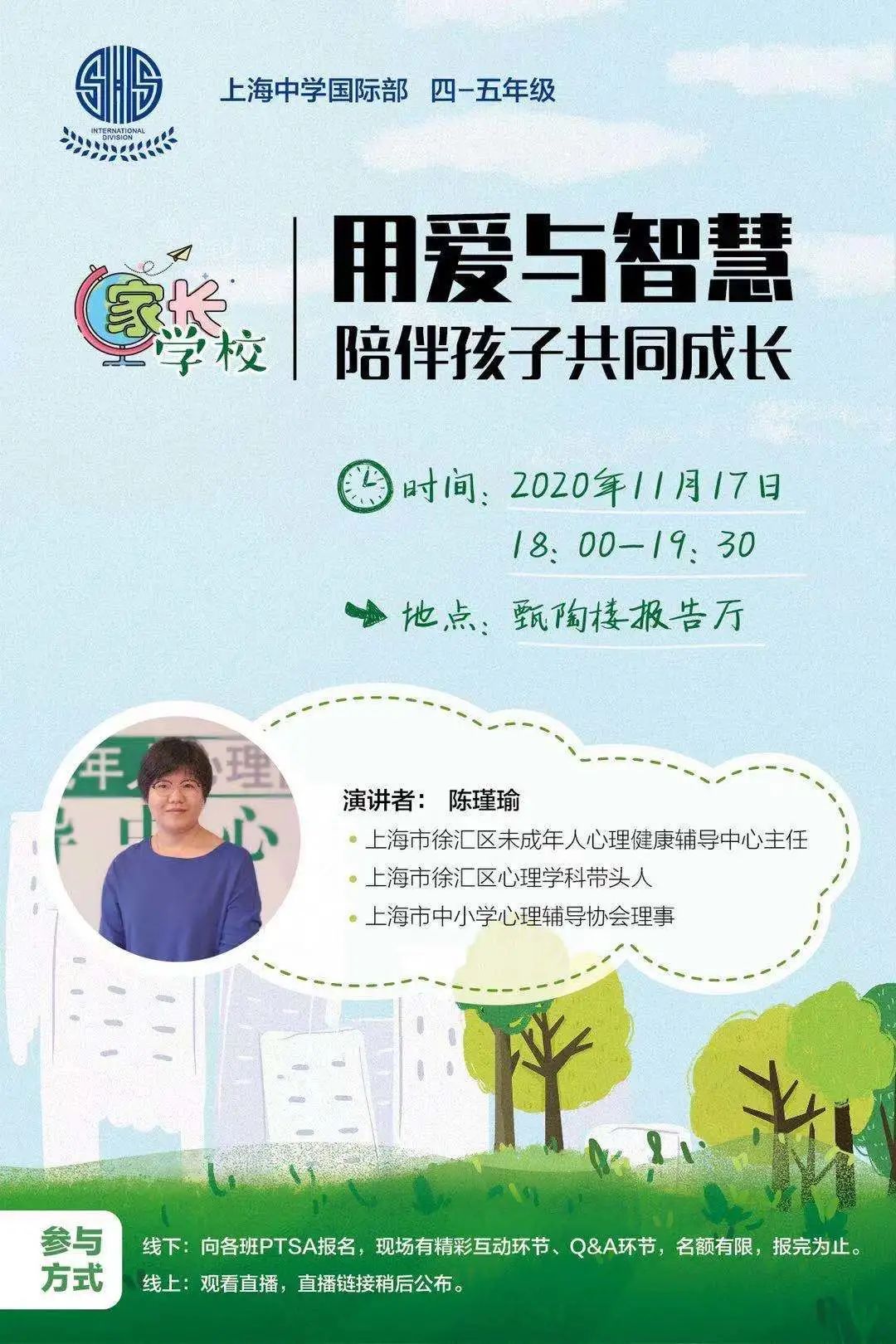
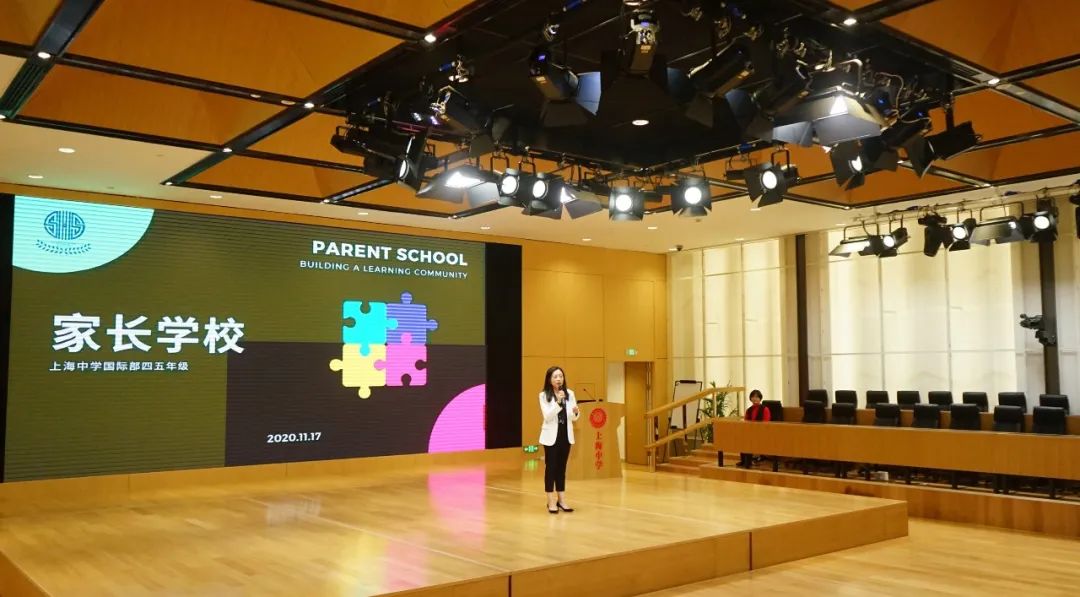
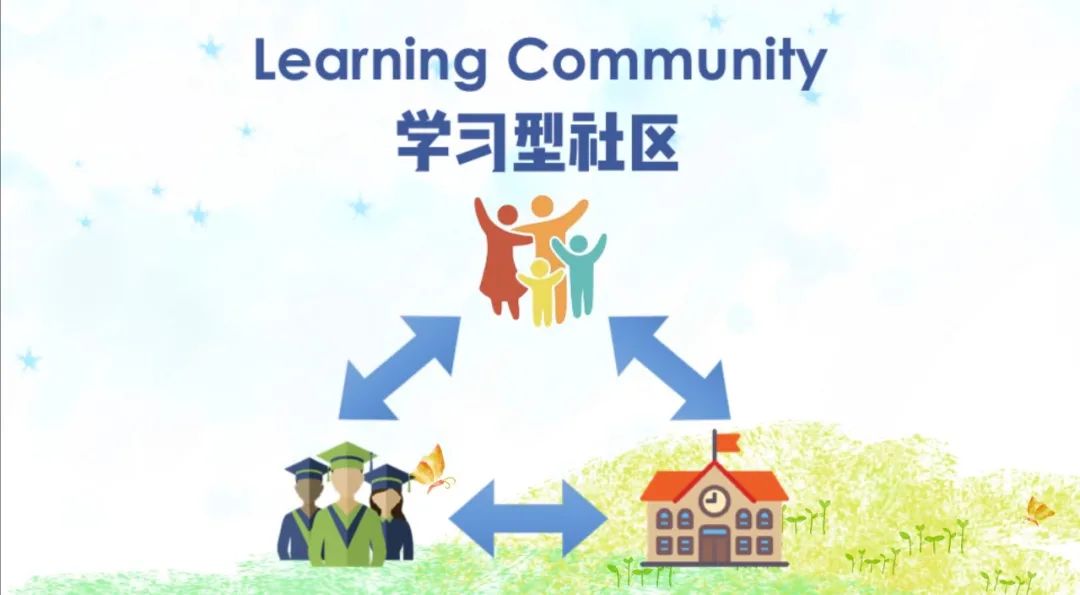
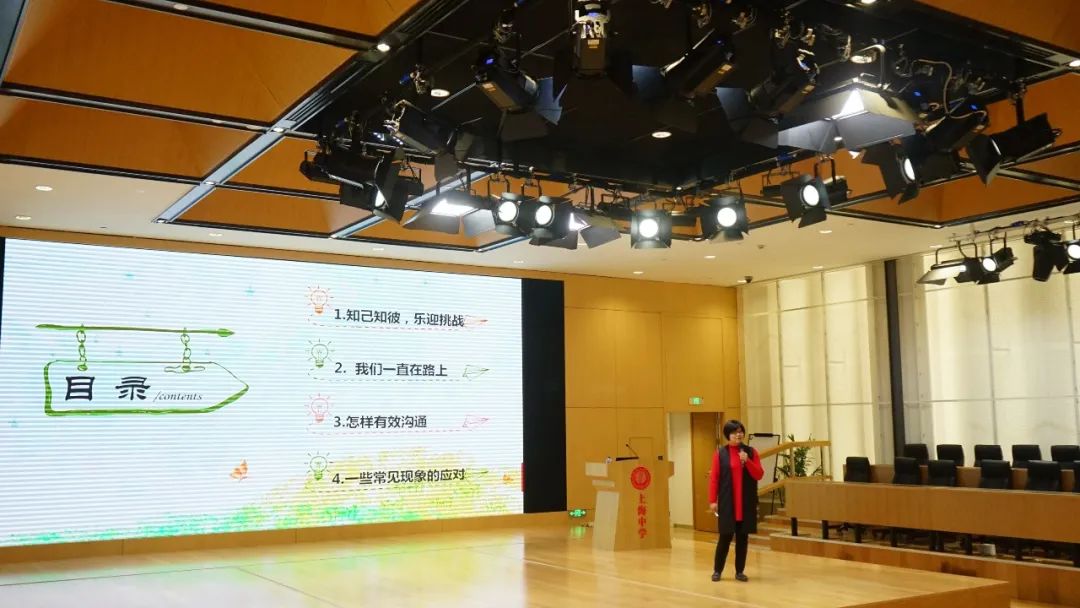
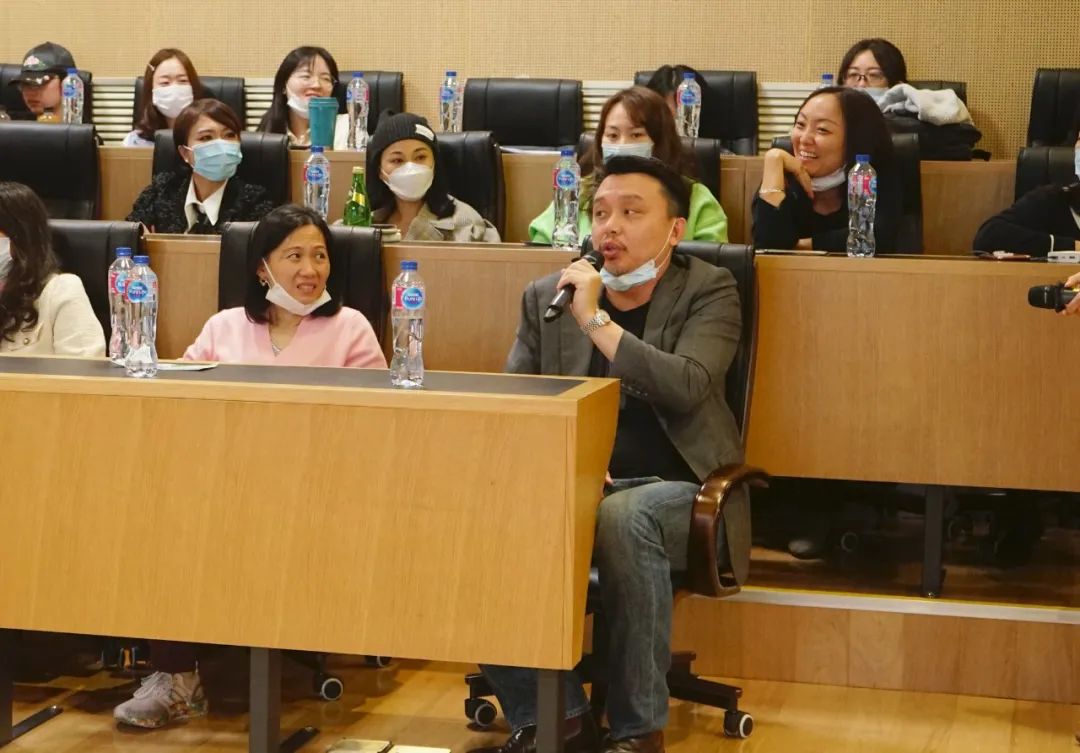
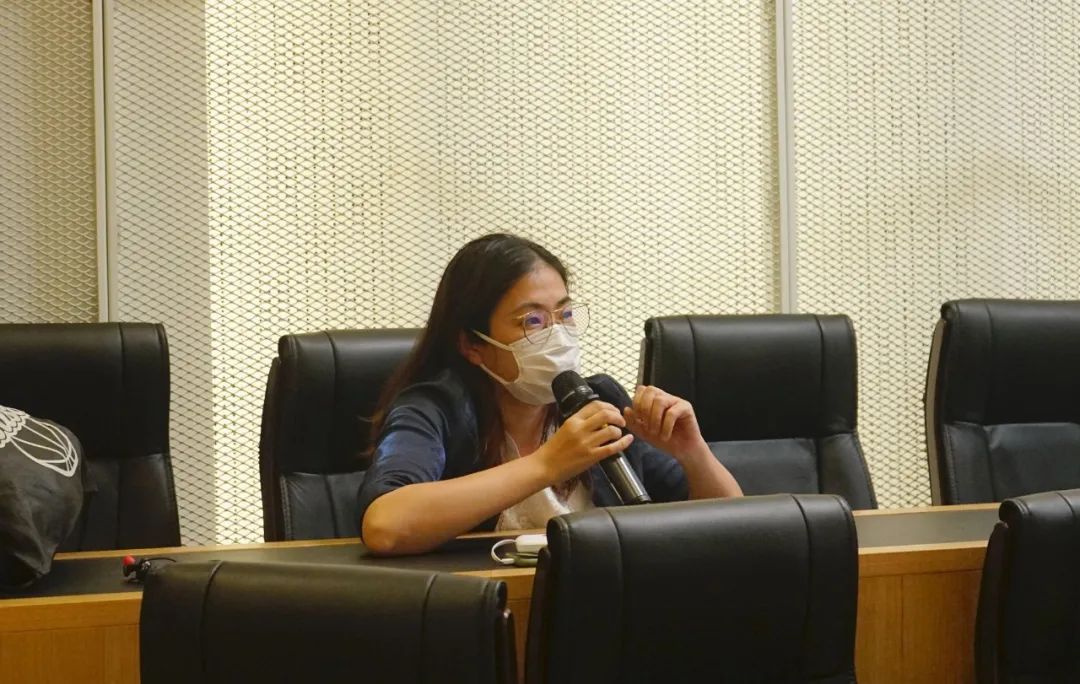
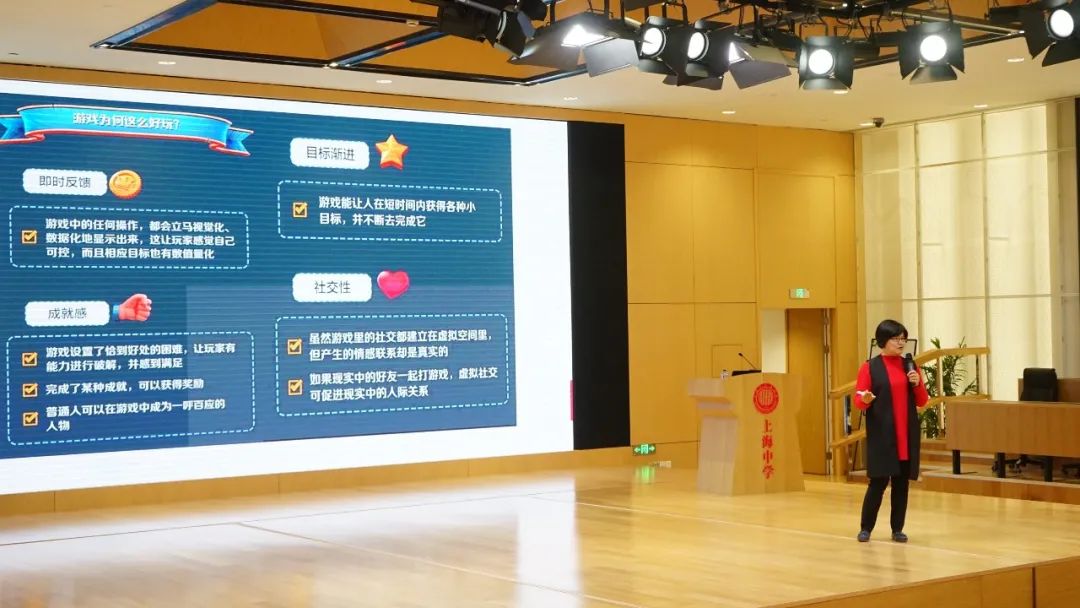
(Written by Shen Jingfeng Pictures by Xu Jing)